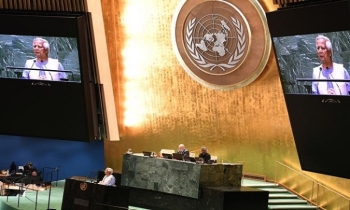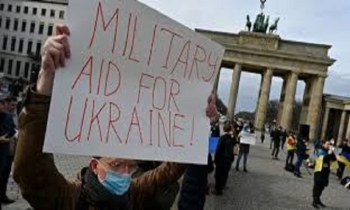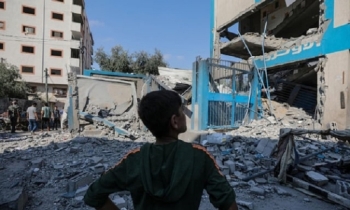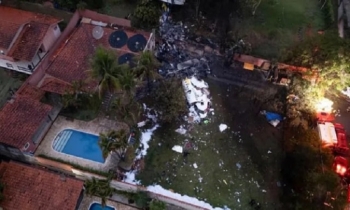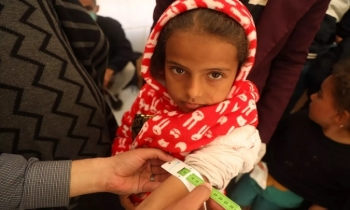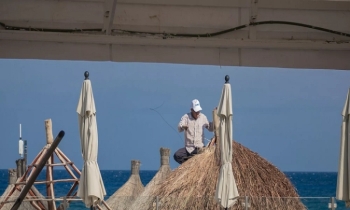Indian doctors stage nationwide strike over colleague’s rape and murder
BI Desk || BusinessInsider
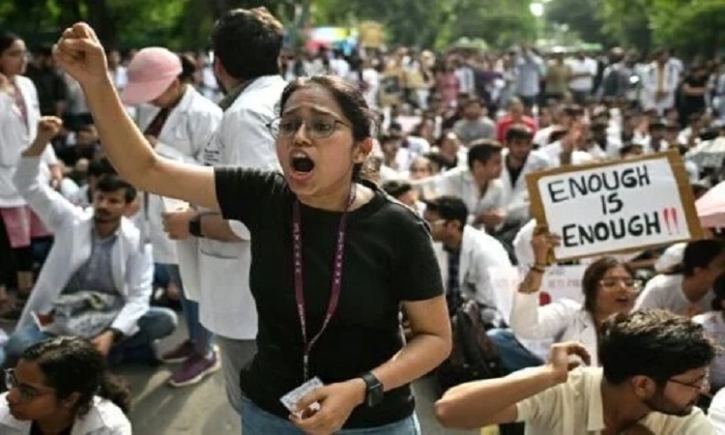
Photo: Collected
Indian doctors held a nationwide strike on Saturday, escalating protests after the "barbaric" rape and murder of their colleague that has channelled outrage at the chronic issue of violence against women.
The discovery of the 31-year-old doctor's bloodied body at a state-run hospital in the eastern city of Kolkata on August 9 sparked furious protests in several cities across the country, reports BSS/AFP.
Many have been led by doctors and other healthcare workers but also joined by tens of thousands of ordinary Indians demanding action.
In Kolkata, thousands held a candle-lit vigil into the early hours of Saturday morning.
"Hands that heal shouldn't bleed," read one sign held by a protester in the eastern city.
"Enough is enough," read another at a rally by doctors in the capital New Delhi.
"Hang the rapist," another said.
The murdered doctor was found in the teaching hospital's seminar hall, suggesting she had gone there for a rest during a 36-hour shift.
An autopsy confirmed sexual assault and, in a petition to the court, the victim's parents said they suspected their daughter was gang-raped.
One man, who worked at the hospital helping people navigate busy queues, has been detained.
However, Kolkata's police were accused by an angry public of mishandling the case and the city's High Court transferred the investigation to India's top Central Bureau of Investigation to "inspire public confidence".
- 'Struggle for justice' -
Those in government hospitals across several states on Monday halted elective services "indefinitely", with multiple medical unions in both government and private systems backing the strikes.
The Indian Medical Association (IMA) escalated protests on Saturday morning with a 24-hour "nationwide withdrawal of services", and the suspension of all non-essential procedures.
"We ask for the understanding and support of the nation in this struggle for justice for its doctors and daughters," IMA chief R.V. Asokan said in a statement ahead of the strike.
The IMA called the killing "barbaric".
"The 36-hour duty shift that the victim was in and the lack of safe spaces to rest... warrant a thorough overhaul of the working and living conditions of the resident doctors," the IMA said in a statement.
Doctors are demanding the implementation of the Central Protection Act, a bill to protect healthcare workers from violence.
"There is a lack of proper infrastructure," said 29-year-old Akanksha Tyagi, a resident at the Lady Hardinge Medical College in New Delhi who took part in one of the multiple protests around the country.
"After working for 24-36 hours at a stretch, there's no proper place for us to rest," she said.
The strike disrupted outpatient services.
At Delhi's Ram Manohar Lohia public hospital, one of the city's busiest, many who had turned up for their scheduled appointments were turned away.
Shivdev Kumar, 50, had travelled over 20 kilometres (12 miles) with the tuberculosis reports of his daughter, only to find the doctor's room locked.
"I had no idea, otherwise I would not have such a long way," he said.
- 'Monstrous' –
Prime Minister Narendra Modi demanded on Thursday swift punishment for those who commit "monstrous" deeds against women.
Sexual violence against women is a widespread problem in India -- an average of nearly 90 rapes a day were reported in 2022 in the country of 1.4 billion people.
For many, the gruesome nature of the hospital attack has invoked comparisons with the horrific 2012 gang rape and murder of a young woman on a Delhi bus.
That woman became a symbol of socially conservative India's failure to tackle sexual violence against women.
Her death sparked huge, and at times violent, demonstrations in Delhi and elsewhere.
Under pressure, the government introduced harsher penalties for rapists and the death penalty for repeat offenders.
Several new sexual offences were also introduced -- including for stalking -- and officials who refuse to register rape complaints can now be jailed.

